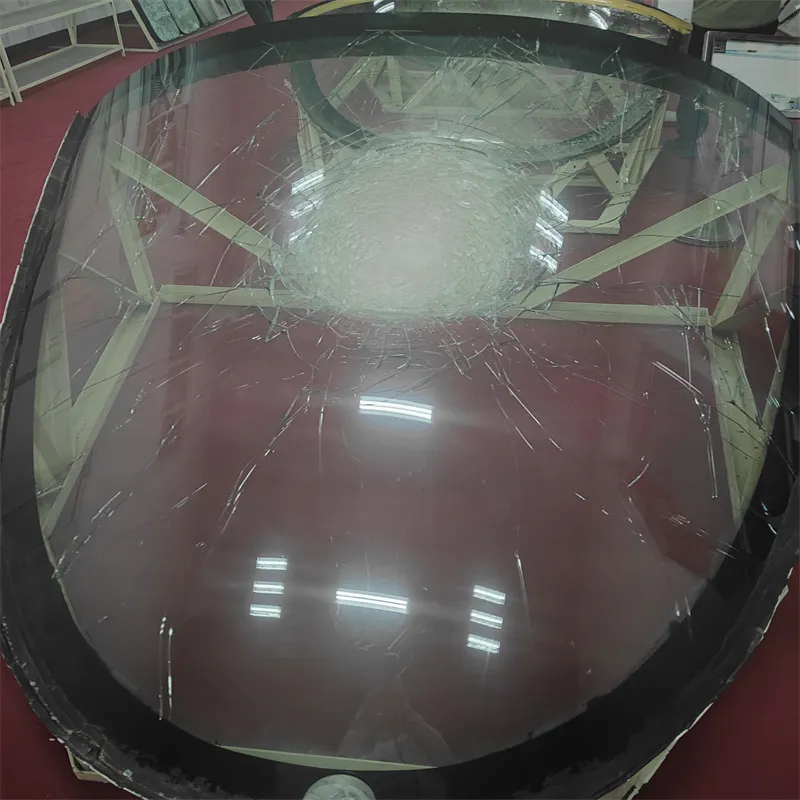Dec . 04, 2024 18:05 Back to list
types of float glass
Understanding Types of Float Glass
Float glass is one of the most commonly used types of glass in the modern construction and manufacturing industries. Its transparent and smooth characteristics make it an ideal choice for a multitude of applications. Essentially, float glass is produced by floating molten glass on top of molten tin, allowing the glass to cool in a flat and uniform manner. This article will explore the various types of float glass, their characteristics, and their applications.
1. Clear Float Glass
Clear float glass is the most basic form of float glass and is characterized by its high optical clarity and transparency. It is used extensively in buildings, windows, and doors due to its ability to permit light without distortion. The typical thickness of clear float glass ranges from 2mm to 25mm, making it suitable for various applications. Builders often prefer it for its affordability and versatility.
2
. Low-E Float GlassLow Emissivity (Low-E) float glass is designed to reflect infrared light while allowing visible light to pass through. This glass is coated with a thin layer of metallic oxides, enhancing its thermal insulation properties. Low-E glass plays a crucial role in energy-efficient buildings, helping to reduce heating and cooling costs by maintaining a stable indoor temperature. It is particularly popular in residential and commercial buildings where energy efficiency is a prime concern.
3. Tinted Float Glass
Tinted float glass is treated with metallic compounds to provide color and reduce glare while still allowing some light transmission. Common colors include bronze, gray, and blue. This type of glass is often used for windows in buildings that require privacy or where sunlight control is essential. Tinted glass is also commonly used in automobiles and skyscrapers to reduce heat buildup and glare, making interiors more comfortable.
types of float glass

4. Reflective Float Glass
Reflective float glass is similarly produced through the application of a thin coating but is primarily designed to reflect light and minimize solar heat gain. The reflective surface enhances privacy, as it makes it more difficult to see inside during the daytime. This glass is frequently found in commercial buildings and high-rise structures where aesthetics and energy savings are important. Its application not only provides a modern look but also contributes to energy efficiency.
5. Laminated Float Glass
Laminated float glass consists of two or more layers of float glass bonded together using a transparent interlayer, typically made of polyvinyl butyral (PVB). This type of glass is known for its safety features, as it holds together when shattered, making it ideal for applications where safety is a concern, such as in skylights, storefronts, and car windows. Laminated glass also offers sound insulation and UV protection, further enhancing its functionality.
6. Tempered Float Glass
Tempered float glass is produced through a heating and cooling process, making it significantly stronger than standard float glass. When broken, tempered glass shatters into small, blunt pieces, reducing the risk of injury. This type of glass is commonly used in high-impact areas such as shower doors, glass railings, and patio doors. The strength and safety features of tempered float glass make it a popular choice for both residential and commercial applications.
Conclusion
In summary, float glass is a versatile material with various types designed for specific applications. From clear and low-E float glass to tinted, reflective, laminated, and tempered varieties, each type has unique properties that cater to different needs in construction and manufacturing. Understanding these types can help architects, builders, and consumers make informed decisions about glass selection, ultimately leading to safer, more energy-efficient, and aesthetically pleasing environments.
-
Safety and Style with Premium Laminated Glass Solutions
NewsJun.24,2025
-
Reinvents Security with Premium Wired Glass
NewsJun.24,2025
-
Premium Float Glass Line for Modern Architecture
NewsJun.24,2025
-
Low Emissivity Glass for Energy-Efficient Architecture
NewsJun.24,2025
-
High-Performance Insulated Glass Solutions for Modern Architecture
NewsJun.24,2025
-
Elevates Interior Style with Premium Silver Mirror
NewsJun.24,2025
Related PRODUCTS














